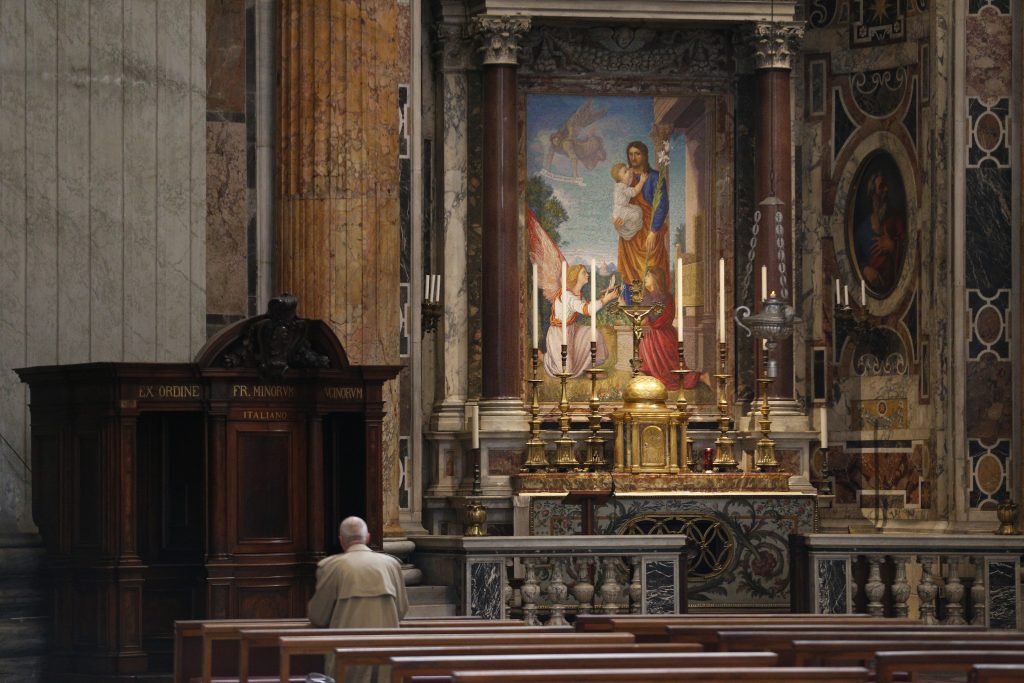The plague, pestilence; such terms not only imply a disease with deadly consequences, but a disease that is mysterious, unknown, and without human control.
But the word “pandemic”? That sounds worse in every way. In reality, the term describes not a disease itself but how extensive and prevalent the appearance of the disease is geographically. In our current situation of the spread of the coronavirus (COVID-19), the World Health Organization has declared this disease to be a global pandemic. There is no location that provides immunity.
Governments, responding to the guidance of health care specialists, are giving practical guidelines to citizens to help protect them from contracting this new disease and from passing it on to others. These interventions are serious and should find a ready compliance from all citizens: This is a deadly disease and we still do not have an effective antidote for it. We can, however, take measures to enhance our ability to avoid it or to reduce the likeliness of passing it on to others.
The question for priests and bishops in serving the pastoral needs of believers amid this health crisis cannot be reduced to repeating the advice of medical experts. The world has experience in similar situations repeatedly throughout history. The Church also has offered guidance for the faithful. We need to review these lessons from the past.
The challenge of today’s pandemic is not only medical, it is also profoundly spiritual.
If in the past these situations of pestilence and plague were interpreted as a kind of divine retribution, today the challenge is certainly a more profound response. I do not subscribe to the interpretation of retribution: God is not out to get us, nor is he looking for payback. It is not, however, wrong to see this crisis of health as a call to renew our relationship to God and to share with him our anxieties, our need for his intervention.
Some people might find it odd that a canon lawyer would be calling for a spiritual response to the current pandemic. It may be surprising for some to read in the law of the Church that:
“If participation in the eucharistic celebration becomes impossible because of the absence of a sacred minister or for another grave cause, it is strongly recommended that the faithful take part in a liturgy of the word if such a liturgy is celebrated in a parish church or other sacred place … or that they devote themselves to prayer for a suitable time alone, as a family, or, as the occasion permits, in groups of families.” (can. 1248)
Of course, this is only dealing with the question of observing the obligation of participating at Mass on Sundays and holy days of obligation. It is all the same quite instructive.
The current tendency of Church leaders appears to simply be to dispense the faithful from the obligation of attending Mass. But this is not the only issue, spiritually speaking, that needs to be addressed. People are rightly scared and need a truly pastoral reassurance — and practical spiritual guidance.
We need to pray. We need to deepen our relationship with God and his Church. Even if it is wise to not congregate in numbers in churches, we should go to the Lord personally, praying in church before the Blessed Sacrament, observing “social distancing” while deepening our intimacy with God. For our own welfare, it is important that we tell God our fears, implore both his intervention to rescue us from this pestilence, and ask for the grace to accept his will and see this crisis through the eyes of faith.
Today we have more means at our disposal than ever before for finding solid, healthy spiritual aids. The prevalence of internet-based prayer opportunities should be taken full advantage of. Websites like iBreviary.com offer not only the complete Mass prayers and readings for each day, but also the complete, official texts for the Liturgy of the Hours for each day as well as a long list of other prayers and Church rituals. The United States Conference of Catholic Bishops (USCCB) website also has the Mass readings for each day.
Simple prayers of proven value and powerful means of growing in spiritual depth are at the heart of the Church’s liturgy. The rosary has a long history of shaping Catholic devotion in a powerful manner, as has the Divine Mercy chaplet.
The point of this short response is that especially in this Lenten season, the Church can help us to refocus and deepen our faith while renewing our conviction in the redemptive love of the Savior, a love that is not overcome by sin or by the fear of death. He has conquered sin and death and he invites us to share more deeply in his redemptive work.
The apocalypse of our day, the coronavirus pandemic, is a spiritual challenge for us to grow in our love of God, our love of the Savior, our love for each human being in our world. I pray that the health pandemic evokes a no-less-global spiritual combat against fear, against complacency, against abandoning the healing, which only God can give.

